'Until Dawn' Review: Can An Interactive Movie Really Be A Good Video Game? [VIDEO]
A vicious winter storm traps a group of teenagers at a remote mountain lodge in Canada owned by a well-to-do family. They’re seemingly alone on the peak, but a malicious force hunts them in the midst of night, unless they can escape.
Until Dawn isn’t so much a video game in the same sense that things like other games in the horror genre are (think Silent Hill or Dead Space); there’s no platforming or inventory to manage, nor do you have to pick up ammunition for weapons. The only thing you’ll be collecting aside from clues is totem pieces, which can show you possible future events. These things can help you piece together what’s happened on the mountain, and save the people trapped on it.
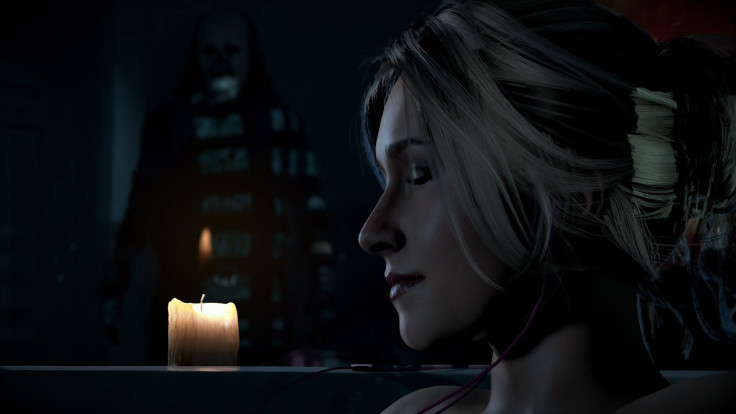
The cast (nearly all of whom you’ll play as throughout the story) is populated by many of the archetypes you’d expect from a movie in this genre: the charismatic playboy, high-maintenance mean girl, athletic chick, and class clown amongst others. They’re all “teenagers” who don’t really look or feel like teenagers, a nod to a common Hollywood trope.
Below the surface however, these characters are layered, though how many levels they fall through is up to you. They’re a diverse bunch with contrasting and complementary personalities, replete with backstories to explore, filled with dating drama. It feels like they’ve known each other for a while -- and it feels like you’ve known them for a while, too. Which makes certain decisions ... very difficult. What you choose to do (or not do) will alter the order of things, but not necessarily in obvious ways. Not until your entire story plays out.
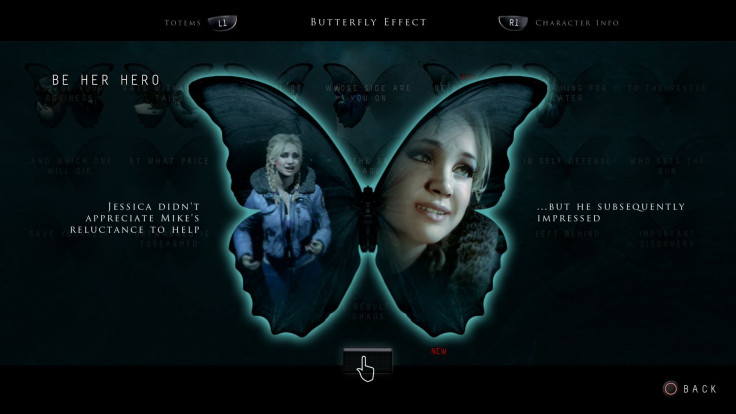
Decisions are the crux of Until Dawn. Even seemingly insignificant actions -- snooping in someone’s backpack to grab a ringing phone, for example -- can have massive consequences down the line in both what you see as a player, and how the characters treat each other. They’ve all got a set of personality traits, but your choices will affect their attitudes. As “nice guy” Matt, you can choose to tell his girlfriend to calm down when she starts a fight with her ex’s new flame, which will earn him scorn and later a nasty attitude in a difficult situation. That decision can also get him killed, depending on what else you do.
That’s what makes Until Dawn compelling. Your choices and their throughlines (referred to as “Butterfly Effects”) make or break situations. Depending on how you play, scenes will never happen and diverging characters arcs will go completely different ways. Many decisions will result in deaths, but Until Dawn never makes it clear which things will do this: You’ll often find that a person you’ve taken a liking to and are attempting to save will ultimately be one you get killed, and there’s no re-dos . Unless you start over from the beginning.
Prologue aside, you’ll have plenty of time to figure out who you like and dislike in the group before heads roll. Until then, Until Dawn asks you “to be completely honest with yourself” and tell its mysterious in-game psychologist exactly what you feel about whom. That role belongs to Doctor Hill, played to skin-crawling perfection by Peter Stormare (think Blacklist, Fargo). Your conversations with him between story chapters help determine what you see in the game: He asks what scares you, what makes you anxious, and who you like and don’t like. The game will torture you with that information in horrible yet beautiful graphical detail.
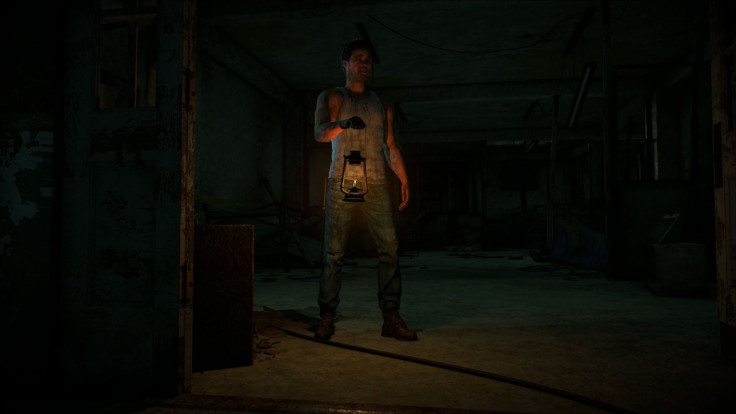
Until Dawn shows off what’s technically possible for games right now, but in an engaging way unlike some other recent “cinematic” games . It’s absolutely beautiful and haunting: Indoor areas are purposefully claustrophobic and dark, keeping you on edge when you come to open spaces...and possible ambushes.
It’s not all slow walking and inspecting pieces of paper, though. When you find characters in risky moments, you’ll face quick time events. Though QTEs are often maligned in the gaming community, they’re used perfectly in Until Dawn, to match the action’s frenetic pace when it makes sense.
Such is Until Dawn in its brilliant moments. You could finish the night with a few survivors, then start all over again and play a different way to gather more clues, see different scenes, and piece together the events the mountain hides. And just maybe, you could save everyone.
There are some issues, though.
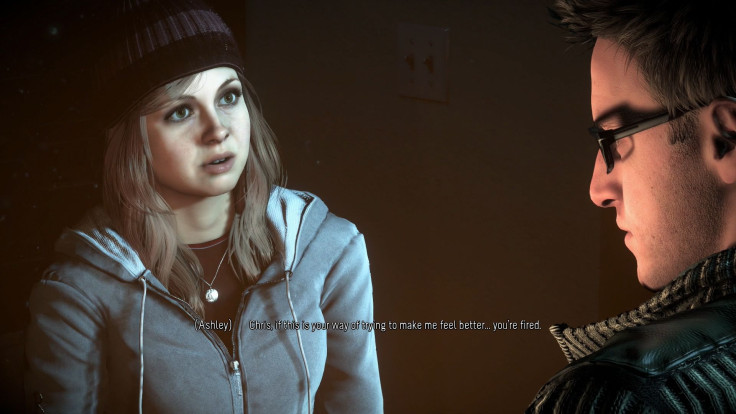
So much of what happens is influenced by your decisions that Until Dawn has a difficult time staying in a cohesive rhythm (though to be fair, your mileage will vary, based on the choices you make). There’s a central story arc that it’s bound by, sure, but it moves forward in short bursts, halting progress just as you start to understand a little more. Most of the time, you’ll be out exploring the environment, without much but the howling of the wind and crunching of snow underfoot to break the silence.
In these moments that Until Dawn likes to lull you into a false sense of security, before it unleashes a jump scare or two. But the game relies too heavily on these moments; It’s not that they’re not an effective scaring method, but after the first five or six times their placement gets a little obvious. For example: when you approach certain places, ominous music plays.
Still, Until Dawn is an interesting experience. At its heart, it’s a slasher film that you get to control rather than passively root for the characters you like to survive. There are multiple mysteries to uncover and any number of possible storylines to find. The beauty of this setup? I finished the game in seven hours, but you might take ten and have a totally difference experience. Whether or not that replayability is worth $60 is up to you.
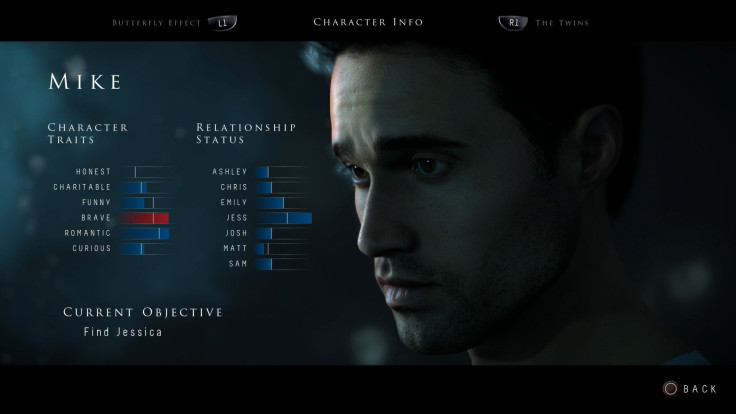
Until Dawn’s satisfaction lies in seeing your choices through to the end. Once you make a decision, you have to live with it.
Or die with it.
"Until Dawn" goes on sale to the public on Aug. 25, 2015.
© Copyright IBTimes 2025. All rights reserved.




















